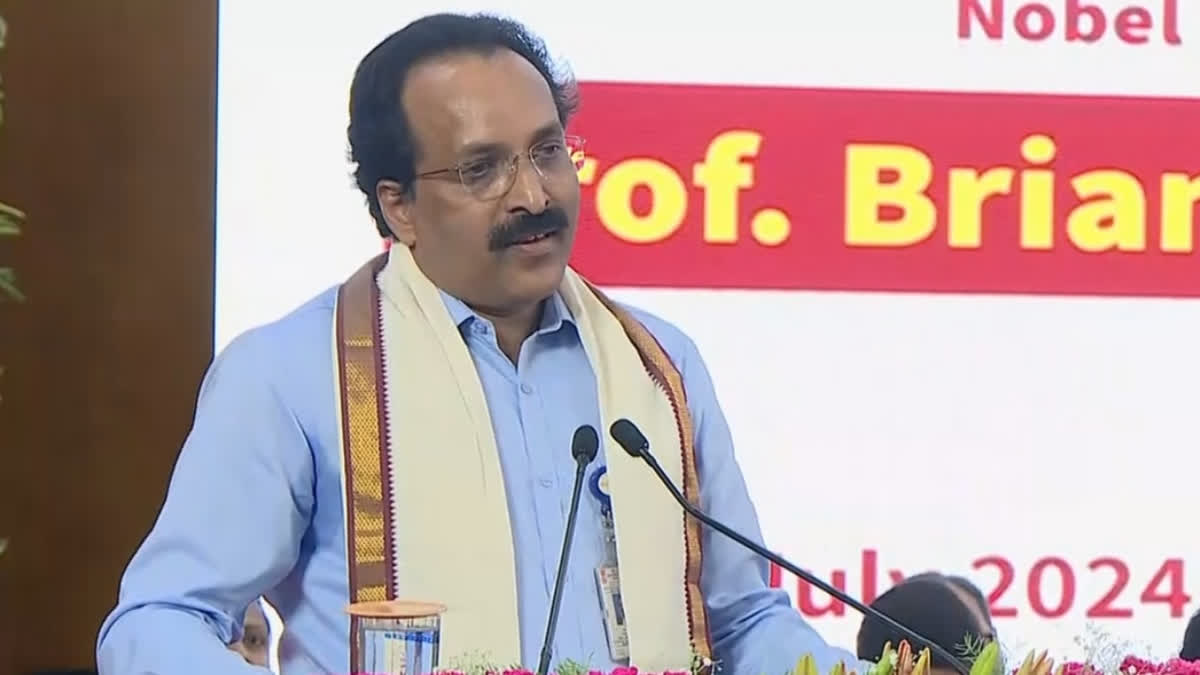Chennai (Tamil Nadu): Indian Space Research Organisation (ISRO) chief S Somanath received his PhD in Mechanical Engineering from the IIT Madras during their convocation here on Friday.
Later in an exclusive interaction with ETV Bharat, he said, "It is an honour to get my PhD from IIT, Madras. I registered in 2006, and since then I have been actively involved in GSLV Mark rocket design work with ISRO as a young scientist, so I was unable to continue my research work for my PhD. Now I have completed and got my doctorate," he said.
Somnath said that research was his favourite field and he had a lot of interest in and it is now a part of his work.
Asked what was the research about, he quipped, "It was about PSLV rockets having high vibrations. By controlling it, the electronic circuits will work properly and will last for more days, so I have researched it under the heading of vibration isolators and implemented it for the first time in PSLV rockets.
Quizzed about ISRO's next plan, he said the design work of NGLV (Next Generation Launch Vehicle) is going on. "The paperwork for setting up a new space research centre has been completed and sent for approval. The work of making Chandrayaan's next version is also going on," elaborated the ISRO chief.
About the Aditya L-1 Mission, he noted that it was doing its job well at the designated site and would be under continuous observation for the next five years.
Meanwhile, a total of 2,636 students graduated during the 61st Convocation of IIT Madras. As many as 3,016 degrees (including joint and dual degrees) were awarded to the students. A total of 444 PhDs were awarded.
Dr. Brian K. Kobilka, who was awarded the Nobel Prize in Chemistry in 2012, said, "I do not consider myself to be exceptional in any way. My career today is an example of how an average individual can achieve a measure of success through a combination of factors including hard work, persistence, an element of luck and a great deal of help from family, friends and colleagues. When I look back at my career, I am amazed by how often I was in the right place at the right time, with the right people."
"I believe that there are five factors that played an important role in my career. First, I found my passion. Something I loved to do. A challenging goal that I wanted to pursue. Second, I was able to find role models and mentors who provided guidance at different stages of my career. Third, I recognised my strengths and weaknesses and found ways to leverage my strengths and accommodate for my weaknesses. Fourth, I had balance in my life. A fulfilling family life outside of my academic career. Finally and fifth, possibly the most important, I was not afraid to fail. I found ways to learn from my failures," added Dr Kobilka.
"A major goal when I began my independent career in 1990 was to obtain structures of the structures of G-protein-coupled receptors in active/inactive states. It took 21 years to achieve the goal and ultimately led to my being awarded the Nobel Prize. During those 21 years, I learned many things about how these receptors work from my many failed experiments,” quipped Dr Kobilka.



